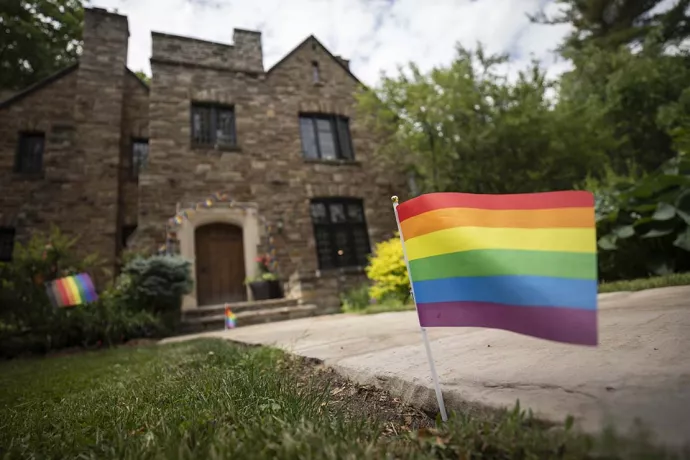
Recognizing Pride Month
To the UTM community,
June 1 marks the start of Pride Month, recognized annually as an opportunity to celebrate the achievements and experiences of LGBTQ2s+ communities; to understand the impact of historical and systemic barriers; and to affirm a commitment to building an equitable future. Its spirit comprises a core of our institutional values, some of which I wanted to indicate with a short quotation from the queer Black poet, Pamela Sneed.
On the fiftieth anniversary of the Stonewall demonstrations in 1969 New York, Sneed delivered a powerful poem on the history of LGBTQ2S+ pride, in all its pain, progress and problems. Full of justifiable rage and trenchant critique, the poem ends on a note of hope, describing a path to freedom blazed by acts of survival and courage. “Each time,” she declares, “we told each other You’re beautiful / You’re not wrong / It was resistance.”
I wanted to echo this liberatory message and affirm a truth as valuable in poetry as at the university: you’re beautiful; you’re not wrong; you’re not alone. You have a right to feel safe and proud, no matter who you love or how you express your identity. I hope that we can celebrate that truth together—both in the coming month and all year round—and to continue to build initiatives, archives and learning resources that break down structures of discrimination.
To that end, I encourage you to participate in Pride events offered for U of T Virtual Pride 2021; to access supports and networks through U of T’s Sexual and Gender Diversity Office; and to re-discover the outstanding research conducted at UTM by—to cite only three examples from Historical Studies— world-leading scholars including Professors Elspeth Brown, Jordache Ellapen and R. Cassandra Lord.
I also encourage you to reflect on a meaning central to Sneed’s poem, exemplified in her call for intersectional inclusion in Pride celebrations and histories: “it might be important,” as Sneed puts it, “to have a Black lesbian present.” Pride Month provides another opportunity to put the spirit of that call in action—to practice a more intentional inclusion; to foreground issues of intersectionality; and to centre the queer and trans experiences of Black, Indigenous and racialized communities. The commitment to intersectionality appears symbolically in the Trans and More Colour, More Pride flags, which U of T will raise across our three campuses, with staffed flags flying at half-mast to mourn the 215 Indigenous children buried at Kamloops Residential School. The commitment also appears materially, both in resources that U of T has already created and in our continued dedication to do better in the future. I look forward to realizing this commitment during Pride and beyond, as we celebrate diversity in sexuality and gender identity; recognize a history of resistance and resilience; and acknowledge the work still needed to realize Sneed’s liberatory hope for everyone.
Thank you.
Alexandra Gillespie
Vice-President and Principal
University of Toronto Mississauga
